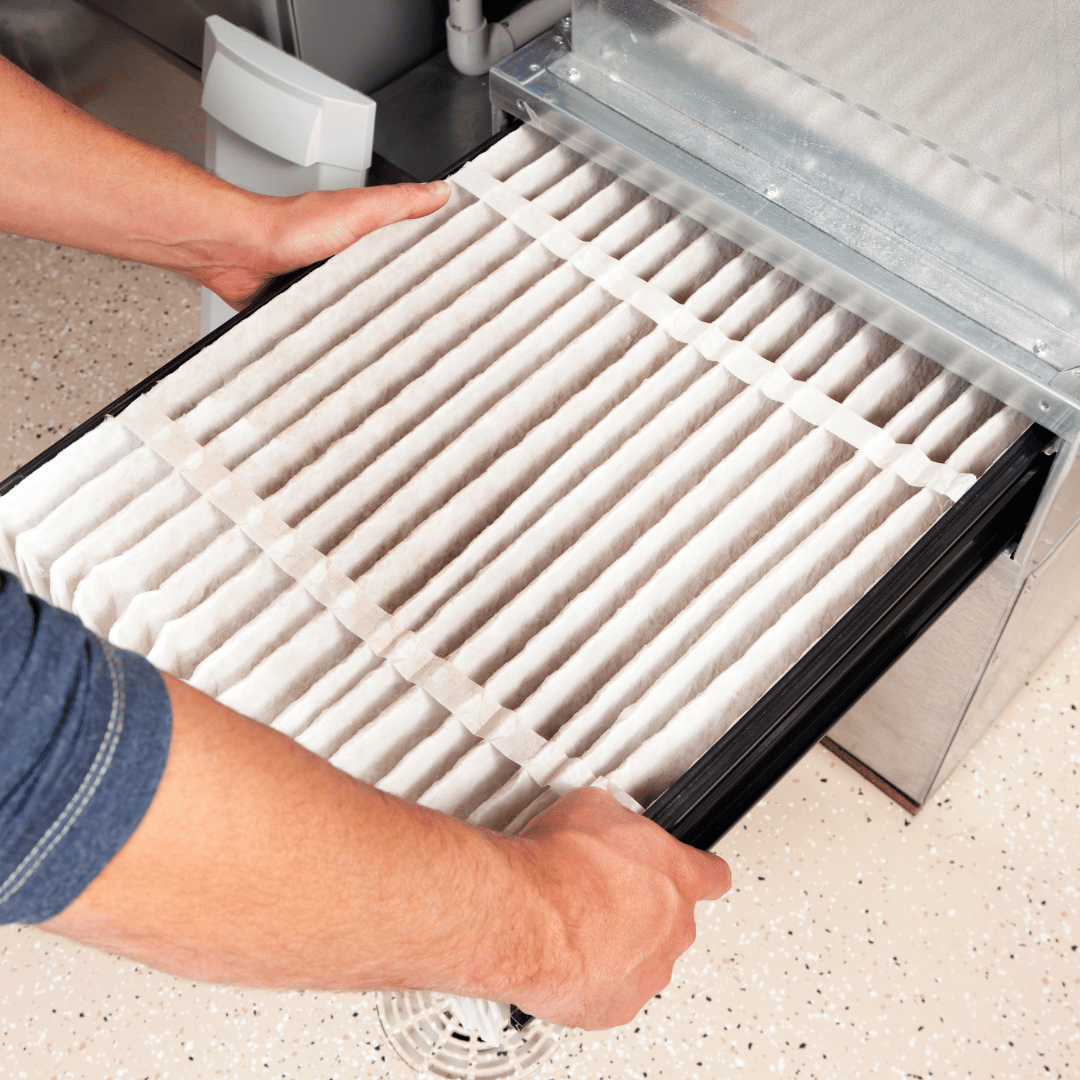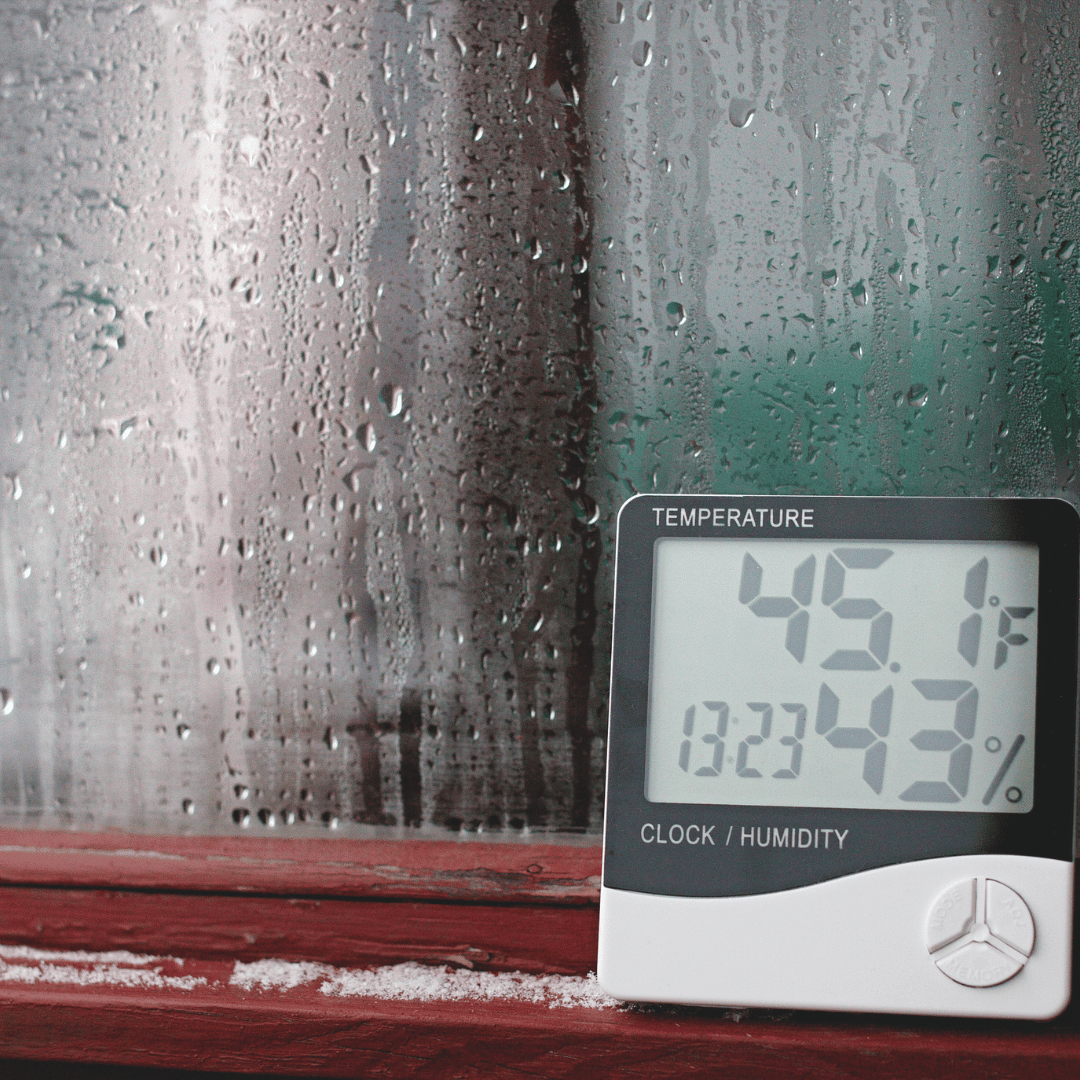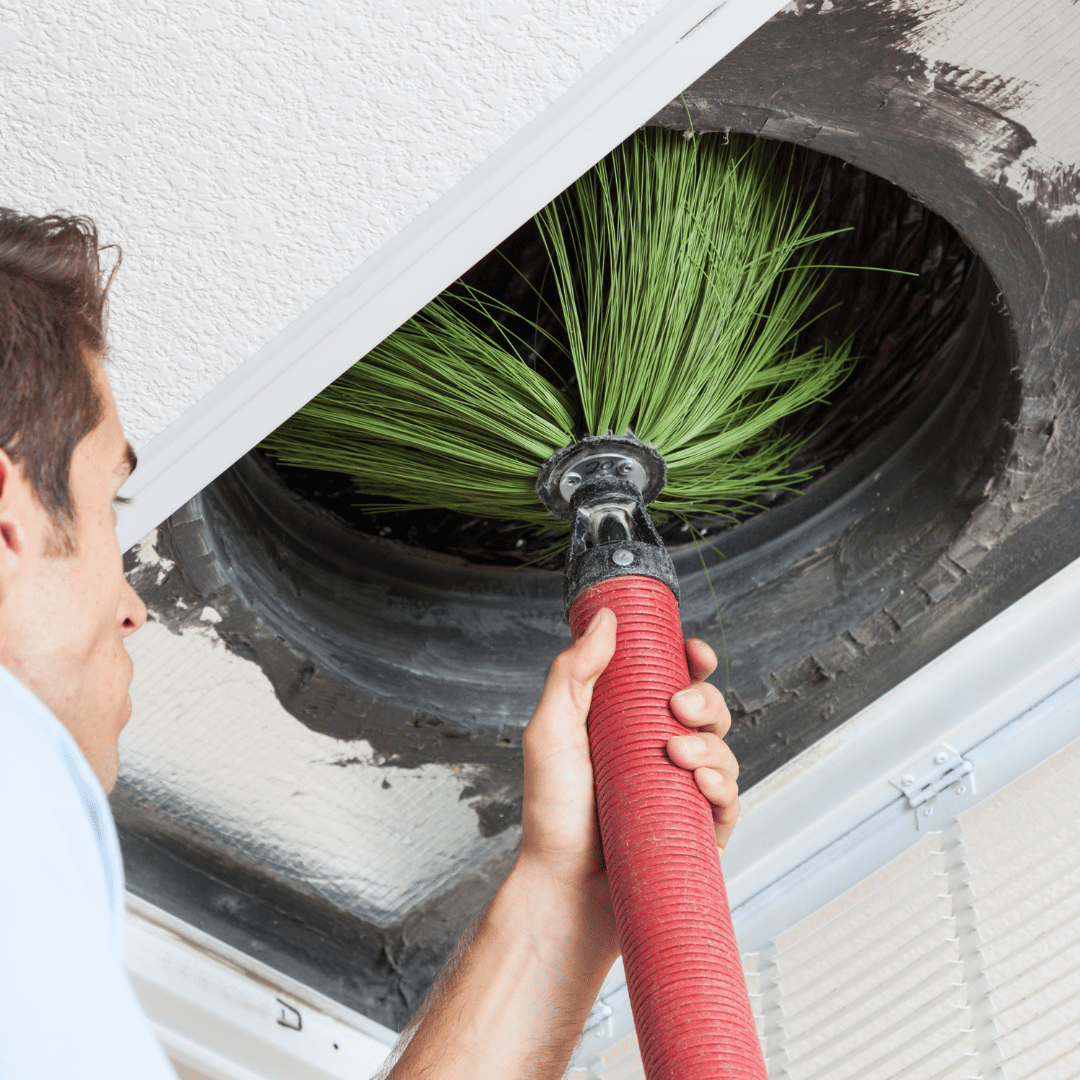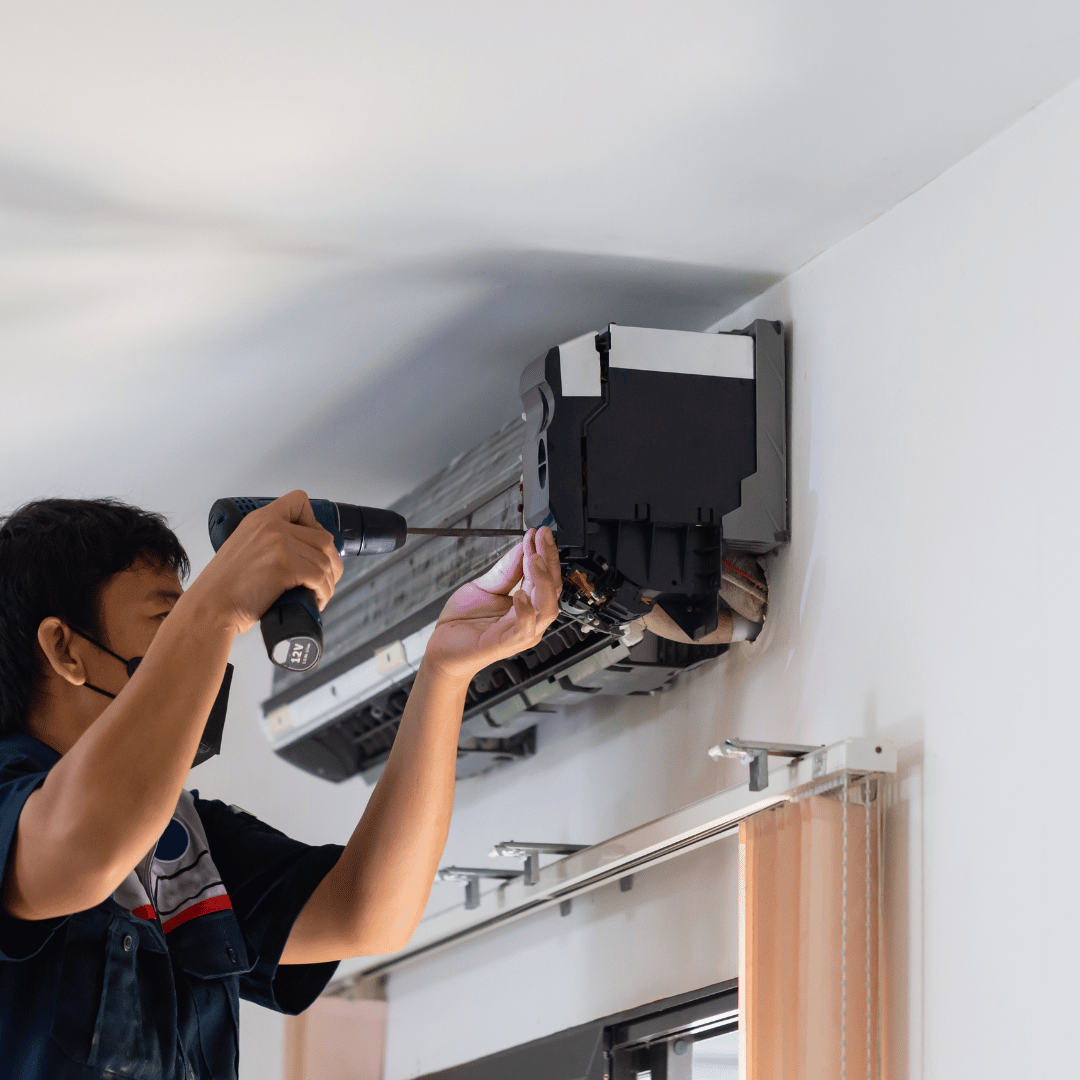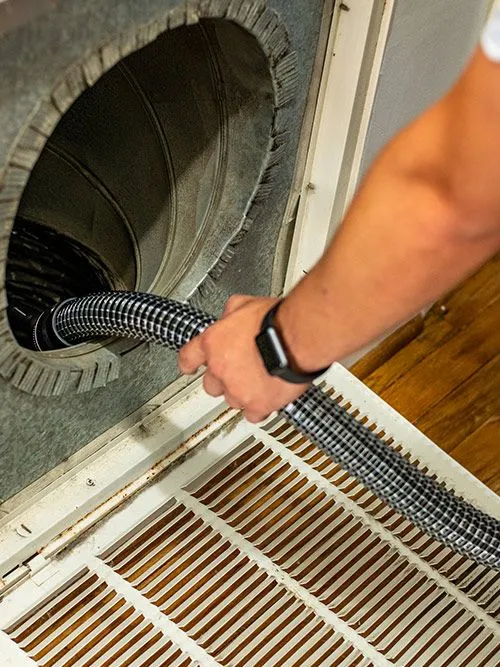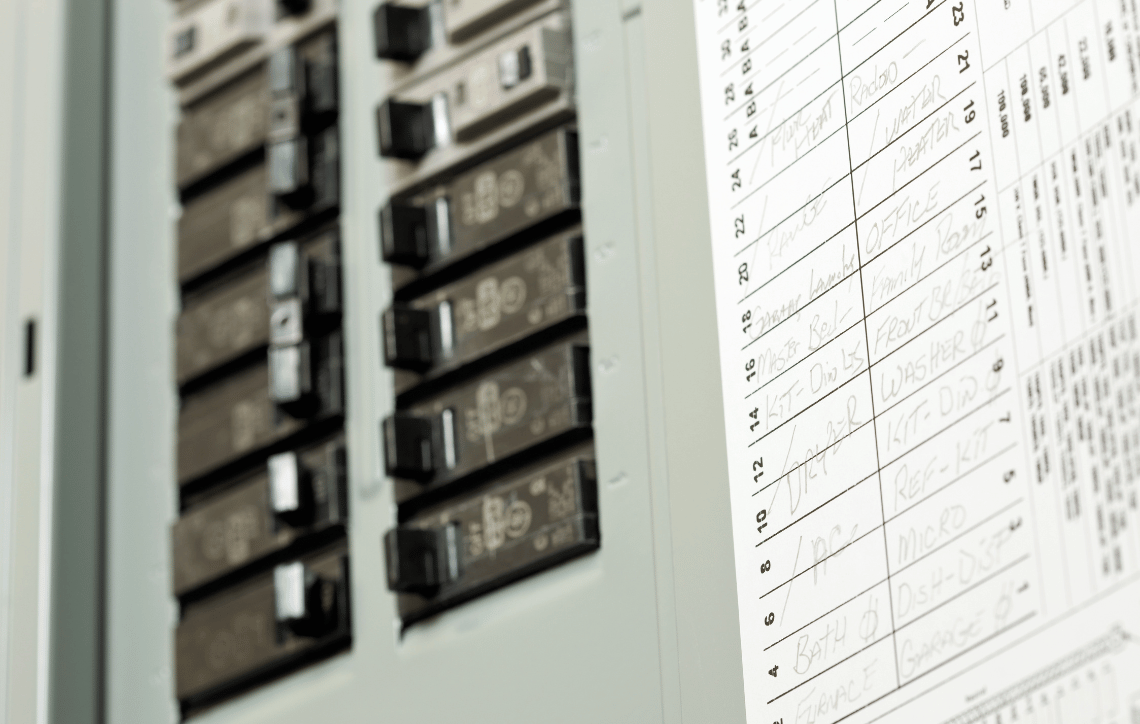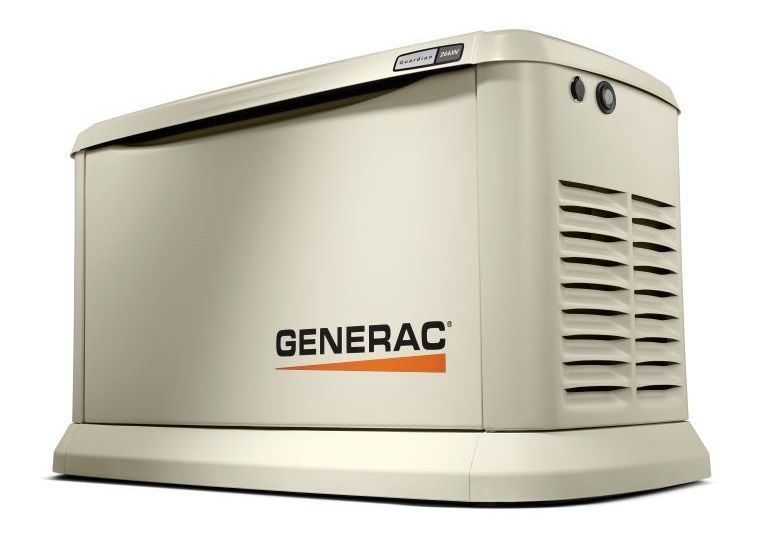Understanding the Different Types of Fuel Used For Home Heating Systems and Their Maintenance Requirements
Winter is here and it's the time to keep your home warm and cozy. But, have you ever wondered about the different types of fuels used for home heating systems and their maintenance requirements? Choosing the right fuel type can save you money and reduce your carbon footprint. This blog post will help you understand the different types of fuel used for heating, their benefits, and the preventive maintenance requirements for each fuel type.
Heating System Maintenance
Before we dive into the different types of fuels, let's first understand the importance of regular maintenance
for your home heating system. Regular maintenance not only ensures that your system is functioning at its best, but it also helps prevent potential breakdowns and costly repairs. It is recommended to schedule an annual furnace maintenance or yearly heating system checkup with a certified technician to keep your heating system running efficiently.
How often should a heating system be serviced?
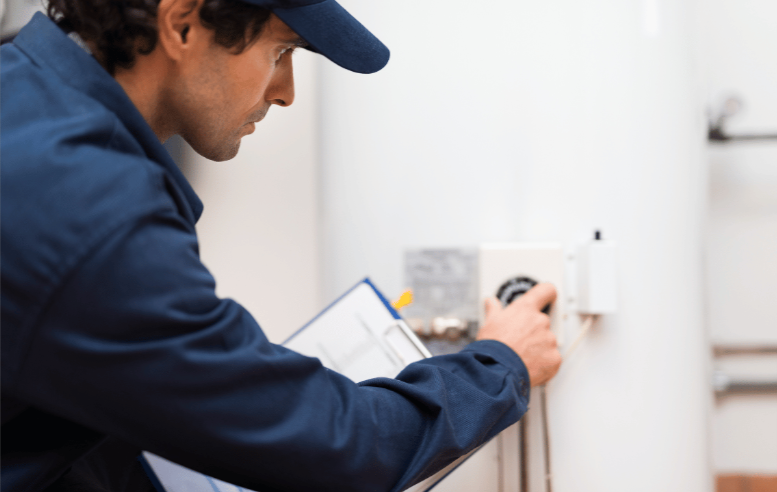
The frequency of maintenance for your heating system depends on the type of fuel used and the manufacturer's recommendations. A gas or propane heating system should be serviced annually, while an oil-fired furnace requires servicing every 6 months. Electric heating systems typically require less maintenance but still need to be checked and cleaned regularly.
What happens during heating maintenance?
During a heating system maintenance check, the technician will inspect and clean various components such as the burner, heat exchanger, blower motor, and thermostat. They will also check for any signs of wear and tear or potential issues that may arise in the future. Additionally, they will ensure that your heating system is running safely and efficiently to avoid any carbon monoxide leaks.
Different types of fuel used for heating system
Natural Gas Heating Systems:
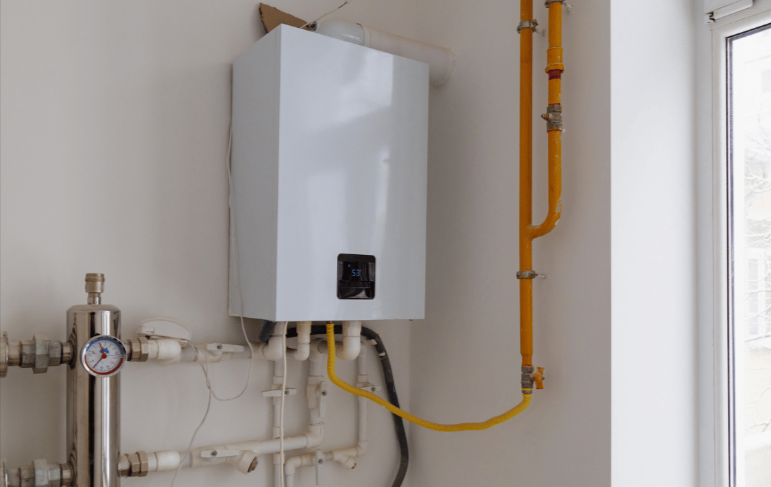
The common fuel used in heating homes is natural gas. Natural gas furnaces, often known as central heating systems, are equipped with a turbine and air vents to generate heated air which can be delivered through registers and windscreen. This type of fuel is a popular heating option for many households due to its efficiency, affordability, and relatively low carbon emissions when compared to oil heating systems. Natural gas is a fossil fuel that consists mainly of methane and is sourced from underground reservoirs. Once extracted, it is transported through a network of pipelines to homes across the country.
Pros:
- High-efficiency rating
- Affordable fuel cost
- Convenient delivery system
- Lower carbon emissions
Cons:
- Availability may be limited in some areas
- Installation can be costly if gas lines are not already in place
- Regular maintenance is necessary to ensure proper functioning and safety
Maintenance requirement
Schedule regular inspections to ensure safety and efficiency. Natural gas leaks can be hazardous, so it's essential to take precautions and have the system checked by a professional. Additionally, the furnace and other components should be cleaned and serviced annually to ensure optimal performance.
Propane Fuel Heating Systems:
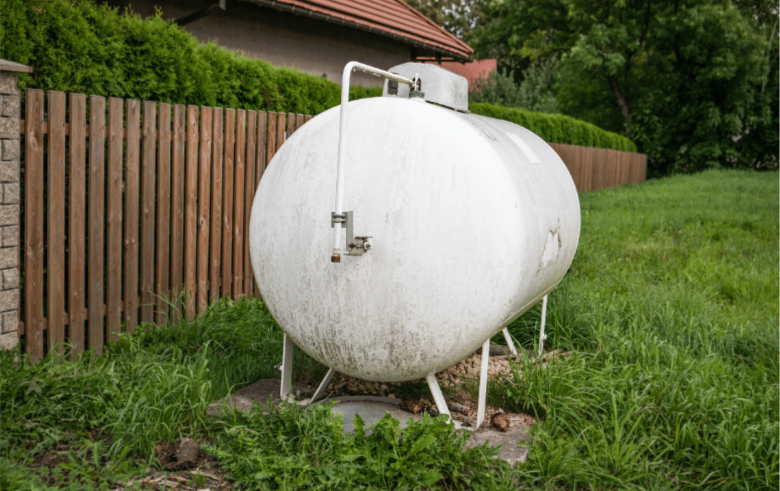
Propane is a clean-burning and versatile fuel that can be used for various household activities, including heating, cooking, and outdoor grilling. It is an efficient and cost-effective alternative to other fuels like electricity or oil. Propane heating systems are eco-friendly and can help reduce your carbon footprint. They are also quiet and provide consistent warmth throughout your home. Propane is readily available and easily stored in tanks, giving you greater flexibility and control over your energy supply.
Pros:
- Eco-friendly option
- Quiet and consistent heat source
- Flexible energy supply with tank storage
Cons:
- Requires a storage tank for the propane
- Regular maintenance is necessary to ensure proper functioning and safety
- May be more expensive than natural gas in some areas
Maintenance requirement
The maintenance requirements for propane heating systems include regular inspections, cleaning of burners, and checking of piping and connections. Propane tanks should also be checked for leaks and serviced periodically.
Electric heating systems:
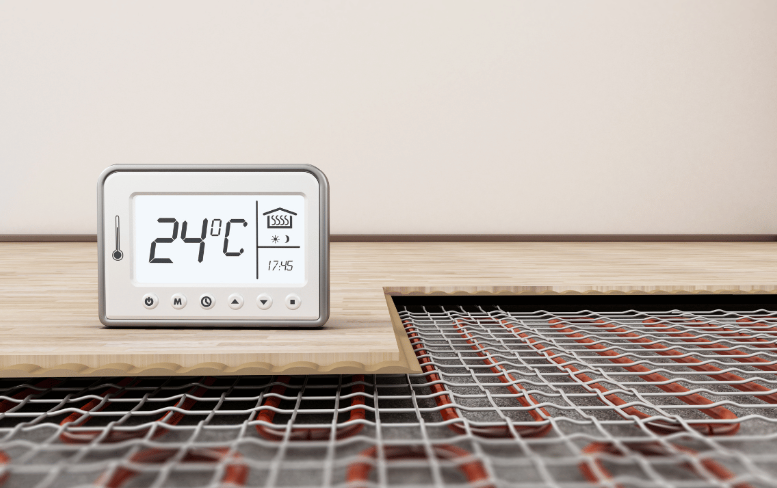
Electric heating systems are a popular choice in regions with warmer climates due to their numerous advantages. They can be installed with ease, making them an attractive option for many homeowners. Electric furnaces work similarly to gas furnaces, but instead of gas, they use electric heating elements to produce heat. The furnace takes in cold air, heats it up using the electric heating element, and then distributes the warm air to your home through heat ductwork. Finally, the furnace takes back the cold air and repeats the process until the desired temperature is reached. They also require less maintenance compared to other heating systems, which can save money in the long run.
Pros:
- High energy efficiency
- Easy installation process
- Low maintenance requirements
Cons:
- Can be expensive to operate during the winter months
- May not provide sufficient heat in colder climates
- Reliance on electricity can lead to higher utility bills
Maintenance requirement
It is important to regularly check for any electrical issues or malfunctions to ensure safety and efficiency.
Factors to consider when selecting a home heating system
When choosing a heating system for your home, it's essential to consider factors such as energy efficiency, availability of fuel sources, cost, and maintenance requirements. You should also take into account the climate of your region and the type of heat source that best suits your lifestyle and needs.
The Impact of Home Heating Systems on the Environment
The energy sources used to power these systems have a direct impact on the environment. Fossil fuels like oil and natural gas emit greenhouse gasses that contribute to climate change, while wood burning can release harmful pollutants into the air. Choosing an energy-efficient and sustainable heating system can help reduce your carbon footprint and contribute to a cleaner, healthier environment.
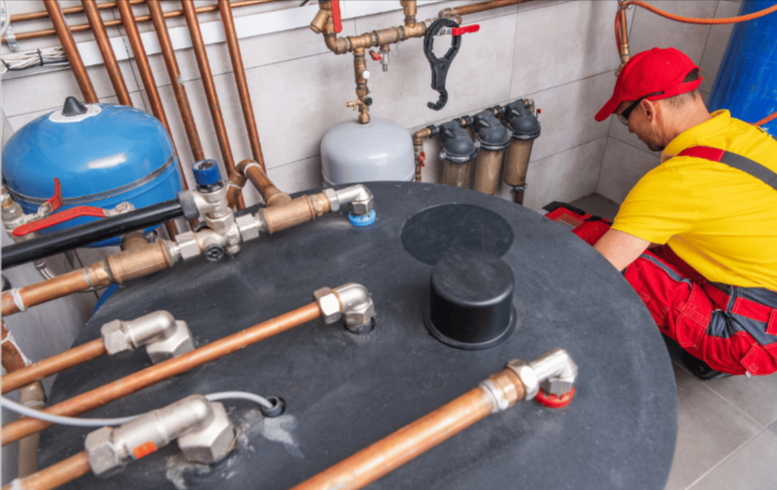
By understanding the different types of fuel used for home heating
systems and their maintenance requirements, you can choose the best system for your needs and keep the system running efficiently and safely. Consider consulting with a professional HVAC technician to determine the best option for your home. With proper care, your heating system can continue to keep your home warm and comfortable for years to come.
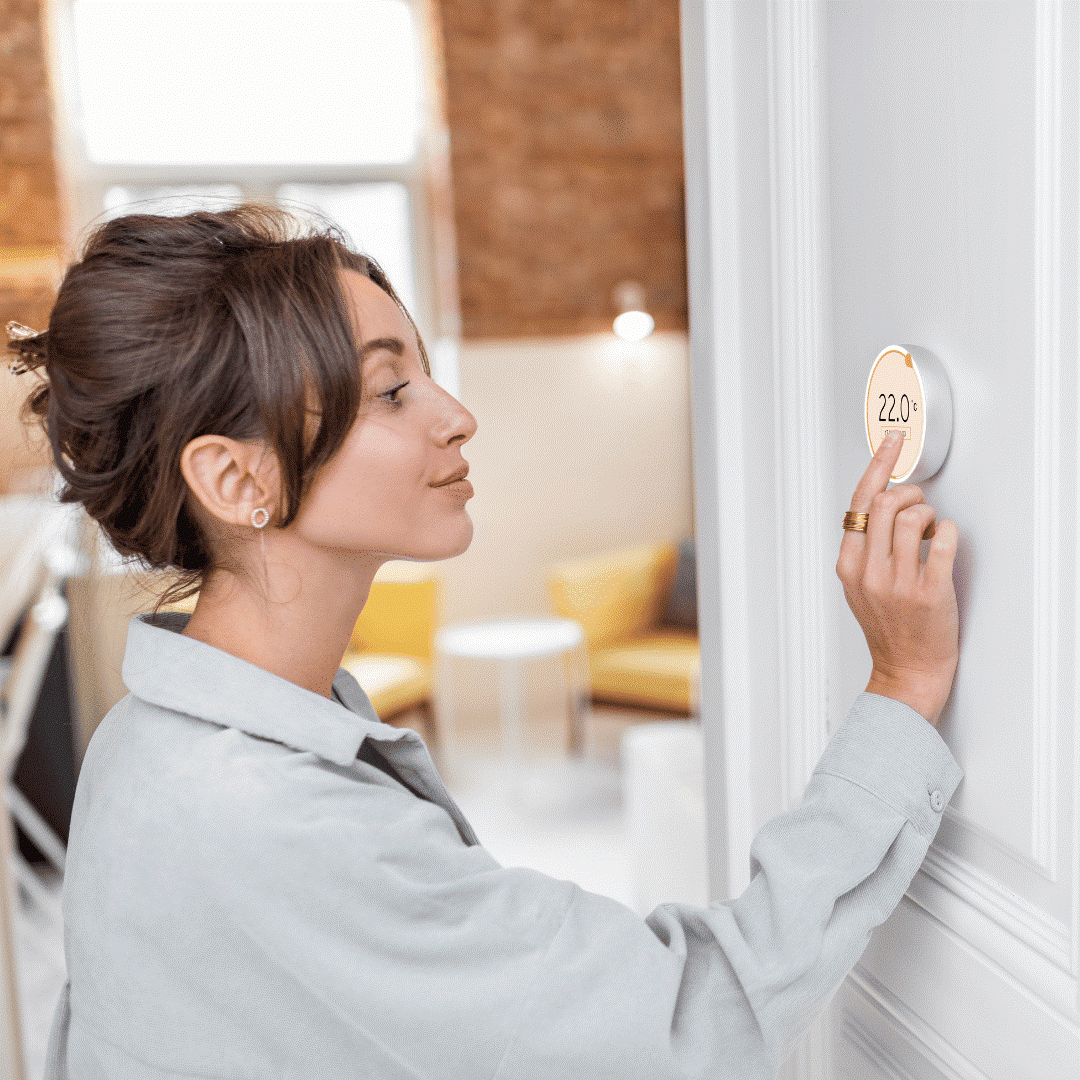
Winter can take a toll on both your home’s heating system and your energy bills. At Salt Air Heating, Cooling & Electrical, we understand the importance of keeping your home comfortable while optimizing energy efficiency. Smart thermostats play a crucial role in enhancing the performance of heating and cooling systems, reducing energy consumption, and improving indoor air quality. How Smart Thermostats Improve Heating and Cooling Systems Smart thermostats are designed to optimize the operation of your HVAC system by automatically adjusting temperature settings based on your schedule and real-time conditions. Unlike standard programmable thermostats, many smart thermostats utilize motion sensors, learning technology, and Wi-Fi connectivity to enhance efficiency and reduce energy waste. Energy Savings and Efficiency One of the key benefits of smart thermostats is their ability to improve energy efficiency. By automatically changing thermostat settings based on occupancy and external weather conditions, these devices help reduce energy bills and optimize heating and cooling cycles. Studies show that smart thermostats reduce unnecessary energy consumption, leading to significant savings over time. Indoor Air Quality and Comfort Maintaining proper indoor air quality is essential during the colder months when homes are sealed tightly to retain warmth. Smart thermostats work seamlessly with HVAC systems to ensure that air circulation remains consistent, preventing air stagnation and improving overall comfort. Additionally, by helping regulate humidity levels, smart thermostats contribute to healthier indoor environments. Tracking Energy Usage and Smart Reports Many smart thermostats provide real-time energy usage reports, giving homeowners valuable insights into their heating and cooling patterns. These reports help identify areas where energy can be saved and offer recommendations for improved efficiency. By understanding how smart thermostats influence your home’s climate control, you can make informed decisions to further reduce consumption and lower utility bills. Enhancing HVAC System Performance A well-maintained HVAC system is essential for consistent comfort. Smart thermostats help extend the life of heating and cooling systems by preventing excessive wear and tear. By reducing the frequency of sudden temperature changes and ensuring optimal thermostat settings, these devices contribute to more efficient system performance and reduced maintenance costs. A Sustainable Approach to Home Comfort Incorporating smart thermostats into your home aligns with energy-saving initiatives and environmental sustainability. With features like geo-fencing, remote access, and automation, smart thermostats help households reduce their carbon footprint while enjoying maximum comfort. How to Choose a Smart Thermostat for Your Home Choosing the right smart thermostat can feel overwhelming with so many options. To decide, consider these key factors: ● Compatibility: Not all thermostats work with every HVAC system. Check if it supports your system, like heat pumps or multi-zone setups. ● Ease of Use: Look for a user-friendly interface with features like touchscreens, voice control, or simple programming. ● Room Sensors: Some models include sensors to detect temperature variations, ensuring even heating and cooling. ● Wi-Fi Connectivity: Wi-Fi-enabled thermostats let you adjust settings remotely via smartphone and integrate with smart home devices. ● Energy Efficiency: Many thermostats learn your schedule and adjust automatically to save energy. Features like motion sensors, geofencing, and energy reports can help lower bills. By considering these factors, you can find a thermostat that boosts comfort, saves energy, and works seamlessly with your HVAC system. Stay Comfortable This Winter with Salt Air Heating, Cooling & Electrical At Salt Air Heating, Cooling & Electrical, we specialize in maintaining heating and cooling systems for peak performance. Whether you're looking to improve energy efficiency, enhance indoor air quality , or optimize climate control, our team is here to help.
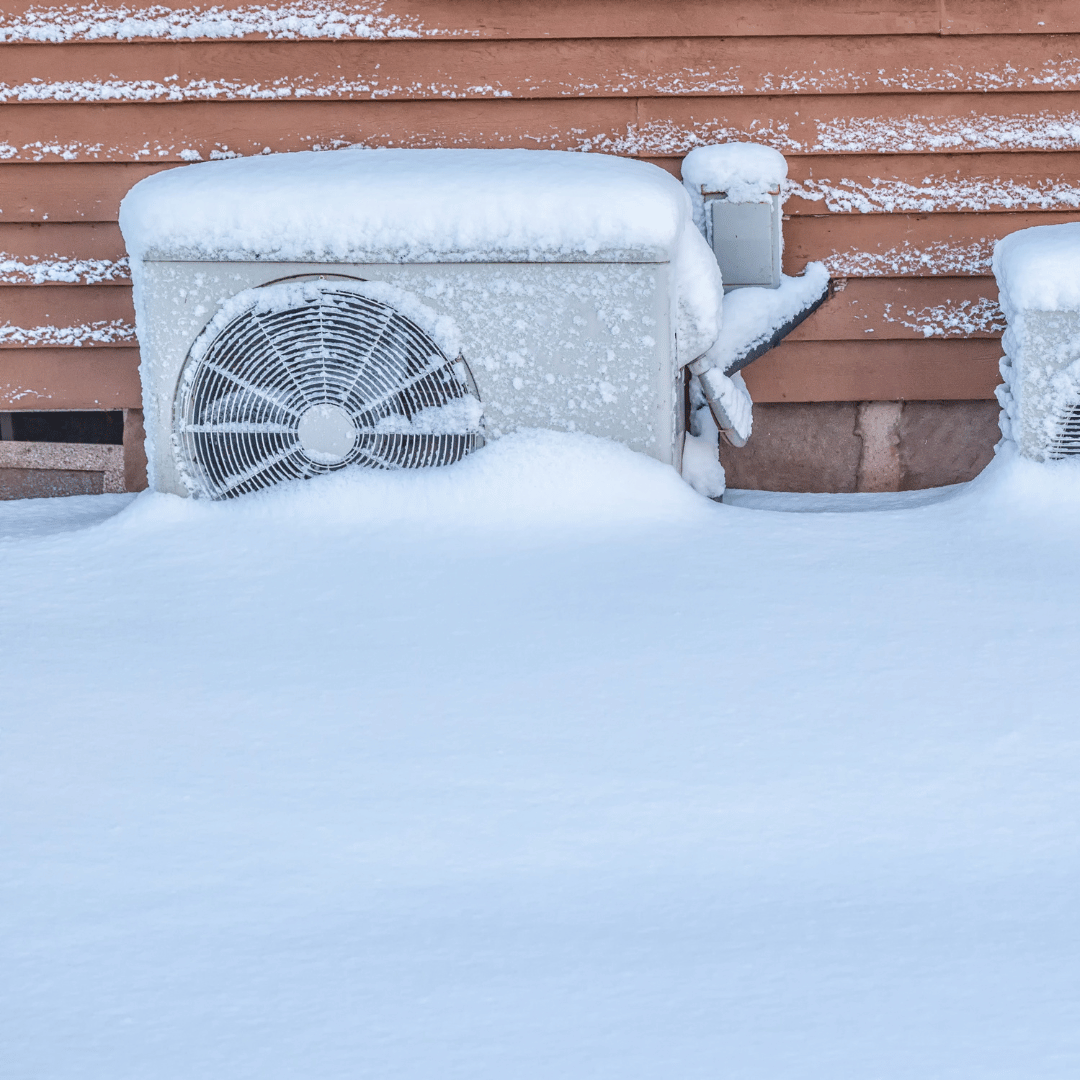
A frozen heat pump in the colder months can throw off your home’s comfort and energy efficiency, leaving you frustrated and shivering. But don’t worry—understanding why your heat pump freezes and knowing how to tackle it can save you time, stress, and energy bills. Let’s walk through how a heat pump works, what causes ice formation, when you can DIY a fix, and when it’s best to call an HVAC technician. Signs of a Frozen Heat Pump In Wilmington, NC, or Brunswick County, NC, identifying a frozen heat pump quickly can save you from discomfort and costly repairs. Look for these signs: Ice on the Outdoor Unit or Coil: Visible ice on the outdoor unit or its coils indicates your heat pump is struggling to function correctly. Weak Airflow or Reduced Heat: If your vents are blowing weaker or cooler air than usual, ice buildup may be restricting the system's performance. Frequent Auxiliary Heat Activation: Relying more on auxiliary or emergency heat than usual suggests your heat pump isn’t operating efficiently. Unusual Noises: Strange sounds like grinding or buzzing could signal mechanical problems related to freezing. Water Around the Unit: Melting ice may pool near the outdoor unit, signaling a freeze-thaw cycle that needs attention. If you notice any of these symptoms, act quickly to prevent further strain on your system. Why Does a Heat Pump Freeze? Several factors can cause your heat pump to freeze, including: Restricted Airflow Clogged air filters , debris around the outdoor unit, or blockages in the air handler can significantly limit airflow, causing the system to work harder than it should. This restricted airflow can lead to a drop in temperature within the system, ultimately causing ice to form on the coils and affecting overall performance. Low Refrigerant Levels Low refrigerant levels reduce the system’s ability to transfer heat effectively, which can cause the temperature within the unit to drop significantly. As a result, frost or ice begins to form on the coils, leading to further inefficiency and potential damage to the system if not addressed promptly. Defrost Cycle Issues A malfunctioning defrost control board, temperature sensor, or reversing valve may prevent the system from defrosting properly, causing ice buildup on the outdoor unit. This can reduce the system's efficiency and may lead to further issues if not addressed promptly, such as restricted airflow or potential damage to the equipment. Cold Weather Conditions Prolonged freezing temperatures combined with high humidity levels can create conditions that overwhelm the defrosting process in refrigeration systems. This occurs because excess moisture in the air can freeze on surfaces more quickly than the system can melt it, leading to ice buildup that disrupts normal operation and efficiency. Inadequate Maintenance Skipping routine check-ups can lead to unnoticed problems that may impact the efficiency and lifespan of your system, such as dirty coils reducing cooling performance, a failing blower motor causing uneven airflow, or a clogged air filter restricting proper ventilation and increasing energy consumption. Regular maintenance helps catch these issues early, saving you time and money in the long run. DIY Solutions for a Frozen Heat Pump If you’ve confirmed your heat pump is frozen, here are some steps to resolve it: 1. Turn Off the System Switch off the system to prevent damage to the blower motor or other components. 2. Inspect and Clear the Unit Remove any debris, snow, or obstructions around the outdoor air unit. Clear the air vents to improve airflow. 3. Check the Air Filter Inspect your air filter for clogs. Replace it if it’s dirty to ensure adequate airflow. 4. Restart and Monitor Turn the system back on and observe its operation. If it doesn’t work as expected, there may be an underlying issue. Preventing Future Freezes For homeowners in Wilmington, NC, or Brunswick County, NC, proactive maintenance is key to avoiding a frozen heat pump. Follow these steps to keep your system running smoothly: Replace Air Filters Ensure proper airflow by changing your air filters monthly or as recommended. Restricted airflow can lead to freezing and inefficient operation. Clear the Outdoor Unit Keep the outdoor unit free from debris, snow, and leaves. This improves airflow and helps the system function properly, even during colder months. Monitor Defrost Cycles During the winter, check if your system switches into defrost mode. This cycle prevents ice buildup. If it doesn’t seem to activate or work effectively, consult a professional. Schedule Regular Maintenance Routine professional check-ups are essential. An HVAC technician can: Inspect refrigerant levels to ensure proper operation. Clean coils to improve efficiency and prevent ice formation. Identify and fix issues before they escalate. By taking these steps, you can keep your heat pump in excellent condition and maintain comfort in your Wilmington, NC, or Brunswick County, NC home all winter long. When to Call for Professional Help Sometimes, DIY fixes aren’t enough. Call a professional if you notice: The heat pump remains frozen after defrosting manually. Frequent freezing despite regular maintenance. Unusual noises, water leaks, or low heating performance persist. Issues with the reversing valve, defrost control board, or refrigerant levels. The Risks of Ignoring a Frozen Heat Pump Neglecting a frozen heat pump can lead to: Permanent damage to the outdoor coil or other components. Increased reliance on emergency heat, spiking your utility bills. Reduced lifespan of your HVAC system. At Salt Air, we understand how frustrating a frozen heat pump can be, especially during colder months. That’s why our experienced technicians provide comprehensive maintenance and repair services to keep your HVAC system running smoothly and your home warm and comfortable. We don’t just fix the symptoms—we get to the root of the problem, whether it’s low refrigerant levels or faulty components. Our team works efficiently to resolve issues, prevent further damage, and restore your system’s functionality. Plus, we fine-tune your heat pump to maximize performance and help lower energy costs, ensuring long-term reliability and efficiency. No matter how extreme the weather, we keep your heat pump’s outdoor unit running reliably, ensuring your comfort all year long. If you’re in Wilmington, NC, or Brunswick County, NC, trust Salt Air Heating & Cooling for expert HVAC services. Our skilled technicians specialize in comprehensive heat pump maintenance and repairs, guaranteeing your system stays efficient—even during the chilliest months.


